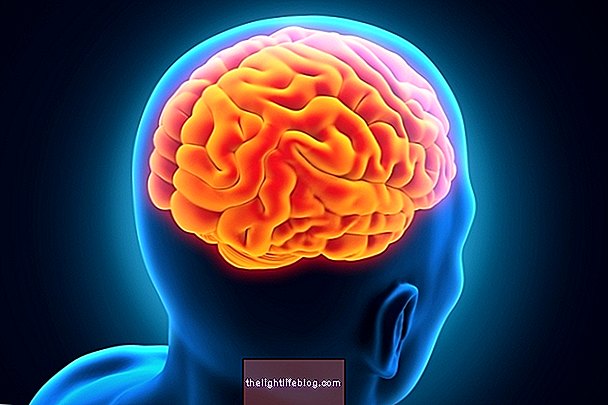The treatment of autism, although it does not cure this syndrome, is able to improve communication, concentration and decrease repetitive movements, thus improving the quality of life of the autistic himself and his family.
For effective treatment, it is suggested that it be done with a team consisting of a physician, physiotherapist, psychotherapist, occupational therapist and speech therapist, which indicate specific therapies for each patient, and often must be done for a lifetime. In addition, there are novelties about food care and activities such as music therapy, which can greatly contribute to the improvement of symptoms.
Thus, some important strategies for the treatment of autism, whether in mild or severe cases, include:
1. Remedies
Although there are no specific remedies for treating and curing autism, your doctor may prescribe medications that can combat autism-related symptoms such as aggression, hyperactivity, compulsiveness, and difficulty coping with frustration, such as clozapine, risperidone, and aripiprazole.

2. Food
Some foods tend to improve or aggravate the symptoms of autism, so it is important to be aware of what the child eats. Foods that should not be ingested include milk and its derivatives because it contains casein, industrialized and with dyes, with preference given to organic foods, bought at the fair, rich in antioxidants and omega 3. See how food can improve autism .
3. Speech therapy
The follow-up with the speech-language pathologist is important to improve the autistic verbal communication with the world. During the sessions there are several exercises that can help the child to increase their vocabulary and improve the intonation of the voice, and games and games can be made to attract the attention of the child.
4. Music Therapy
Music helps the autistic to understand emotions, increasing their interaction with the world around them. The goal is not to learn to sing or play any instrument, but it is important to know how to listen and express yourself through the sounds that the instruments can produce and also through dance movements, for example in a light and relaxed environment. Learn about other benefits of music therapy for autistics.
5. Psychotherapy
Psychotherapy should be guided by the psychologist and can be performed alone or in a group, with weekly meetings. It can be used in behavioral therapy, for example, that can help you dress yourself.

6. Psychomotricity
It can be guided by a specialist physiotherapist and during the sessions can be held various games and games that can help the child to focus on only one thing at a time, to tie the shoes, contributing to a better control of the movements, fighting the repetitive movements that are common in the case of autism.
7. Equine therapy
Horse therapy is very useful for improving the body's straightening reaction, when the child is on top of the animal, motor coordination, breathing control and developing the autistic self-confidence. Sessions usually last between 30 minutes and 1 hour. Learn more about equine therapy.
How to care for the autistic child at home
Some important home care to improve the autistic quality of life are:
- Observe if the child has any special talent, because many autistic children have aptitude for mathematics, music, drawing or computer science, for example;
- Respect the routines, because the autistic does not tolerate the changes well;
- Avoid having unnecessary furniture and objects at home to protect them from accidents;
- Develop good sleep habits, respecting bedtimes, with less intense lights and light meals before going to bed.
Another important tip is to avoid places such as snack bars and supermarkets, because for the autistic there are many stimuli in these places, which bother you like very strong lights, loudspeakers announcing the offerings of the day, someone coughing and babies crying, for example. Over time, parents will realize what the child tolerates or not and once they feel safe they can take the child to these places.
The autistic can attend school like any other child, not needing special education, but that depends on the degree of autism. However, in the cases of more severe autism, the child may find it more difficult to accompany his classmates, generating symptoms such as anxiety and irritability, which can compromise learning. Therefore, some parents choose to enroll their children in special school or hire teachers to teach the child at home.
The autistic parents should have, from time to time, a day of rest to renew their strength because only then can they offer the best for their children.




















